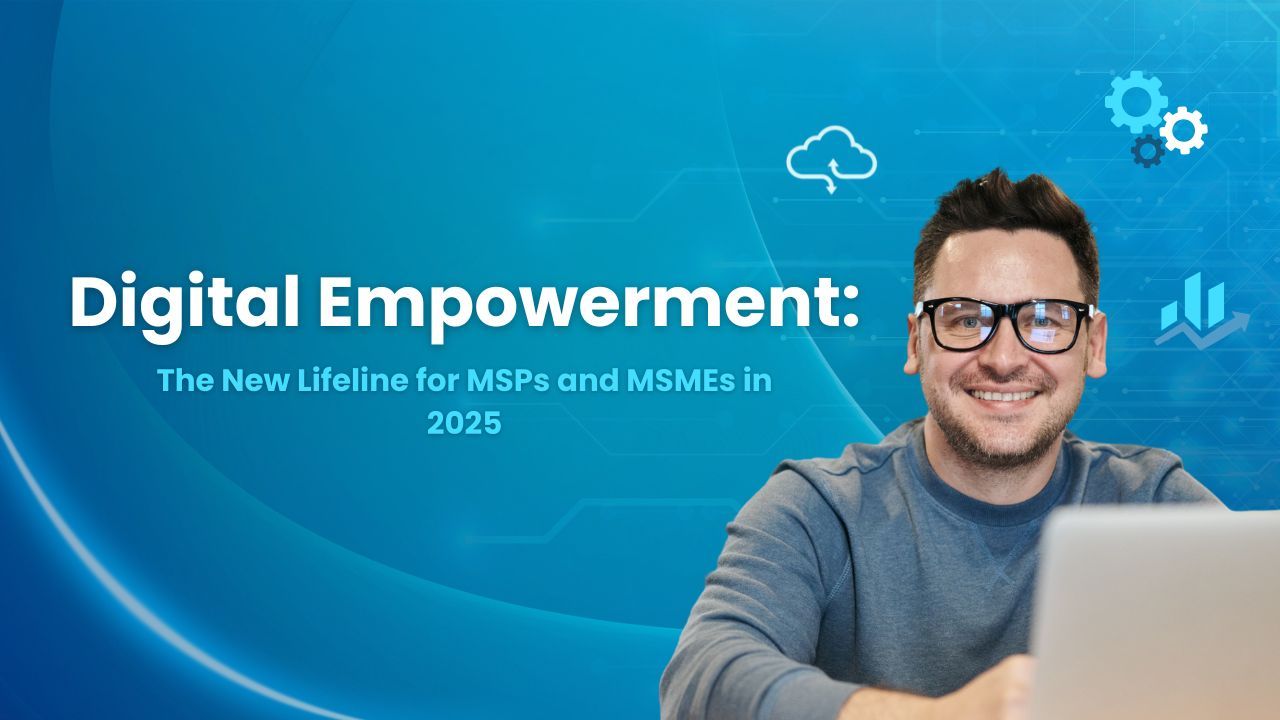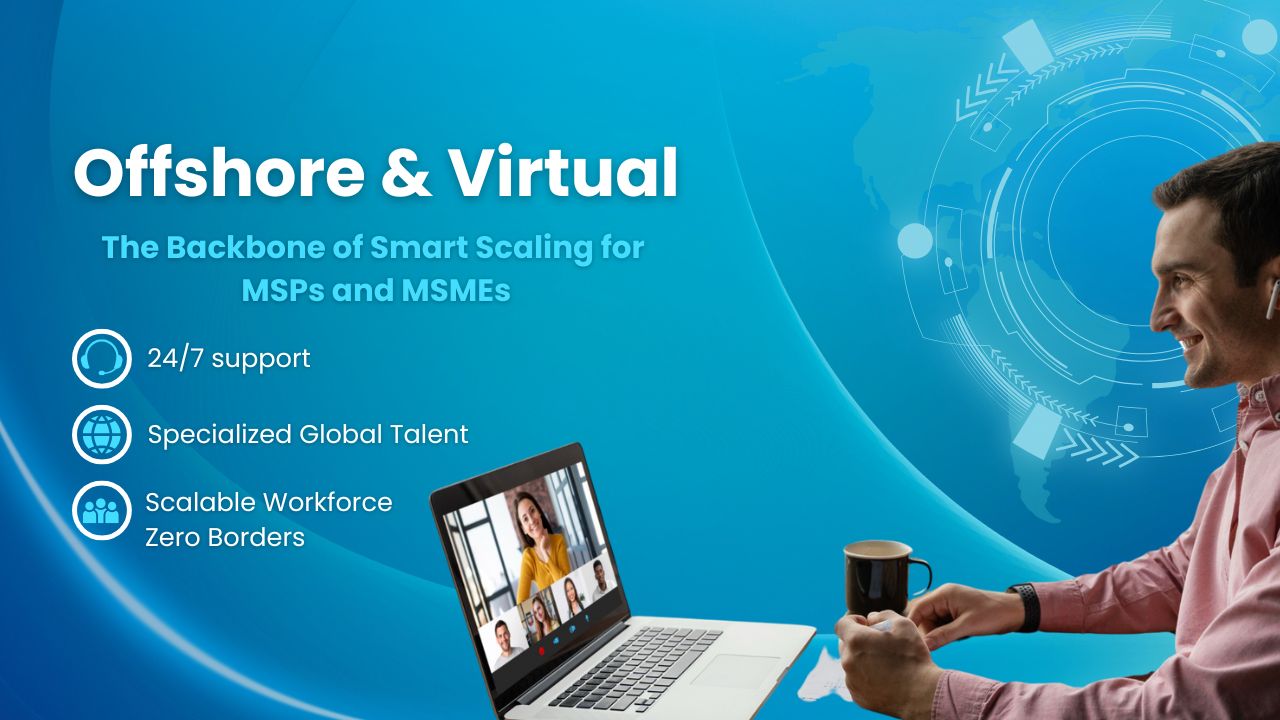
Digital Empowerment for MSPs and MSMEs: Tools, Talent, and Tactics to Compete in 2025
By: Atty. Rojane M. Puruel, LI.M.
Why Digital Empowerment Matters Now
For Managed Service Providers (MSPs) and Micro, Small, and Medium Enterprises (MSMEs), the difference between stagnation and sustainable growth in 2025 lies in their ability to adopt, integrate, and optimize digital tools and systems.
In a rapidly shifting economic landscape, digital empowerment isn’t about keeping up with trends—it’s about staying operational, competitive, and relevant. Cloud platforms, automation, and virtual staffing aren't just tools for scaling—they’re strategic levers that allow smaller players to operate with the efficiency, precision, and reach once reserved for large enterprises.
For MSPs and MSMEs alike, the road to resilience starts with understanding that digital empowerment is not about having the latest software. It’s about combining the right tools, trained people, and efficient systems to achieve more with less.
How Service Providers and Growing Businesses Can Unlock Digital Empowerment
1. Start with the Right Foundation: Cloud-First Infrastructure
At the heart of digital empowerment is accessibility—and nothing offers more accessibility than cloud-based infrastructure. Moving core operations to cloud platforms helps reduce overhead, eliminate costly legacy systems, and enable remote work without sacrificing security or performance.
For MSPs, the benefits are immediate. Cloud-based tools like Microsoft 365, Google Workspace, or Zoho allow teams to collaborate in real time, share files securely, and manage communications across time zones. These platforms also make it easier to onboard new team members, scale with client needs, and maintain consistent service delivery.
MSMEs benefit similarly. Instead of managing in-house servers or on-premise software, they can use SaaS platforms for everything from accounting (Xero, QuickBooks Online) to HR (BambooHR) to project management (Asana, Trello). The result? Less time spent maintaining infrastructure, and more time building value for clients.
Pro Insight: Businesses that adopt a cloud-first mindset early are more agile, faster to respond to disruptions, and better positioned to embrace the next wave of tech innovation.
2. Automate the Mundane: Focus Human Talent on Strategy
Many MSPs and MSMEs still waste hours each week on repetitive administrative tasks—sending invoices, onboarding clients, updating CRM records, managing appointment bookings. These tasks may be necessary, but they aren’t strategic.
That’s where automation delivers outsized impact.
By using low-code and no-code automation tools like Zapier, Make, or HubSpot Workflows, businesses can automate a range of tasks: from data entry and follow-up emails to lead routing and invoice reminders. Automating these functions doesn’t replace your people—it frees them up to do the high-value, human-centric work that drives growth and retention.
Real-world wins:
- MSPs use automation to trigger client follow-ups after service calls.
- MSMEs automate quote approvals, reducing turnaround from days to hours.
- Teams build workflows that integrate Slack, email, and project tools—reducing manual updates across systems.
Pro Insight: The goal isn’t full automation—it’s intelligent automation. Automate just enough to lighten the load and let your team focus on what matters.
3. Outsource with Purpose: Build Hybrid Digital Teams
Empowerment isn’t just about technology. It’s about people. And for modern businesses, especially MSPs and MSMEs, a hybrid workforce combining in-house and outsourced talent is quickly becoming the most efficient way to scale.
How Offshore and Virtual Teams Elevate Operational Strength
In an increasingly competitive and fast-moving business environment, offshore and virtual teams are becoming essential—not optional—for MSPs and MSMEs looking to scale smartly. Far from being just a means to cut costs, these teams unlock a deeper layer of operational flexibility, specialization, and resilience that traditional staffing models often can’t match.
One of the most immediate benefits is 24/7 support across time zones. With a globally distributed workforce, businesses can extend their operational hours without exhausting their local teams. This is especially valuable for MSPs that offer around-the-clock monitoring, emergency tech support, or international client services. It also improves responsiveness, ensuring that customers get the help they need—whenever they need it.
Offshore teams also offer access to specialized skills that may be scarce or cost-prohibitive locally, such as bookkeeping, IT support, lead generation, or customer onboarding. Instead of spending months trying to recruit hard-to-find talent or stretching your internal staff beyond their capacity, you can tap into ready-to-deploy professionals who are already trained, certified, and equipped to support your goals.
Then there’s cost-efficiency with flexible staffing models. Offshore partnerships allow businesses to scale teams up or down based on project demands, seasonal spikes, or budget shifts—without the long-term commitments, overhead costs, or administrative burdens that come with full-time hires. For growing companies, this agility can mean the difference between hitting a growth target or missing it due to staffing delays or resource strain.
Multilingual capabilities add another layer of strategic value. Virtual teams based in global hubs often bring language fluency and cultural familiarity that helps businesses expand into new markets, support international clients, and improve communication across diverse customer bases. This isn’t just a service perk—it’s a competitive advantage in global customer acquisition and retention.
Working with virtual assistants, outsourced accounting teams, or remote customer support professionals also helps keep core staff lean and focused. These remote contributors don’t simply fill resource gaps—they bring consistency and structure to daily operations that may otherwise be disrupted by turnover, burnout, or bandwidth limitations.
Pro Insight: The real opportunity isn’t just in delegation—it’s in integration. When offshore teams are embedded into workflows, aligned with your goals, and empowered to take ownership, they don’t just deliver tasks—they drive innovation. Treat them not as distant contractors, but as a seamless extension of your organization—and they’ll help you scale with stability, speed, and purpose.
4. Make Data Actionable: Real-Time Dashboards and KPIs
Empowerment also comes from visibility. Knowing your numbers—accurately and in real time—enables smarter, faster decisions. And for many MSPs and MSMEs, this is where digital tools deliver their highest ROI.
Platforms like Power BI, Google Looker Studio (formerly Data Studio), Fathom, or Tableau let businesses turn raw data into intuitive dashboards. With minimal setup, you can start tracking:
- Client churn and retention trends
- Ticket resolution times or SLA compliance
- Revenue by service line or region
- Cash flow, gross margins, and expense ratios
Instead of relying on end-of-month spreadsheets or quarterly reports, you’re making decisions based on what’s happening now.
Pro Insight: Don’t track everything. Focus on 5–7 metrics that reflect your key objectives—and make those visible to leadership every day.
5. Train for a Digital-First Culture
Tools and processes are only as strong as the team using them. True digital empowerment means creating a culture where digital thinking is the default—not an afterthought.
This begins with training. Whether through LinkedIn Learning, Coursera, or internal workshops, businesses need to give their teams the skills to thrive in a digital-first environment. That includes software fluency, workflow design, communication tools, and cybersecurity awareness.
Pro Insight: Digital empowerment isn’t about having the best tech stack—it’s about having a team that knows how to use it with confidence and purpose.
Digital Maturity Is Your Growth Multiplier
Digital empowerment isn’t just a box to check—it’s a shift in how a business thinks, works, and evolves. For MSPs and MSMEs navigating a landscape of constant disruption, building digital maturity is what transforms reactive operations into proactive, forward-looking strategy.
At its core, digital maturity means moving beyond isolated tools and toward fully integrated systems that inform, automate, and enable action. Cloud platforms don’t just store files—they create a shared workspace where teams can collaborate without friction, whether they're across town or across time zones. Automation doesn’t just reduce repetitive work—it frees up your best people to focus on innovation and relationships. Virtual teams aren’t just cost-efficient—they expand your reach, help you support global customers, and make your business more resilient to local disruptions.
Real-time data is what sharpens decisions. With the right dashboards and KPIs, leadership is no longer guessing or waiting—they're adjusting in real time. Whether it’s optimizing service delivery, reallocating marketing spend, or spotting early signs of client churn, digital maturity puts decision-makers in the driver’s seat.
And perhaps most importantly, a culture rooted in digital literacy creates lasting resilience. Teams that are trained, confident, and digitally fluent don’t just adopt tools—they adapt with them. They contribute to better workflows, faster onboarding, stronger service, and ultimately, more sustainable growth.
In 2025, the businesses that thrive won’t be the ones with the most headcount or the largest budgets. They’ll be the ones with the clearest view, the fastest reflexes, and the leanest, smartest systems. Digital maturity is no longer a competitive edge—it’s the foundation for long-term relevance. Build it now, and you’ll be ready for whatever comes next.
Join the Conversation
📢 Is your business ready to scale with a digital-first approach?
Gabtech Global helps service-based businesses and MSPs build agile, technology-enabled teams that deliver results—no matter the challenge.
💬 Follow our blog for more actionable insights—and let’s build smarter, faster, and stronger—together!
